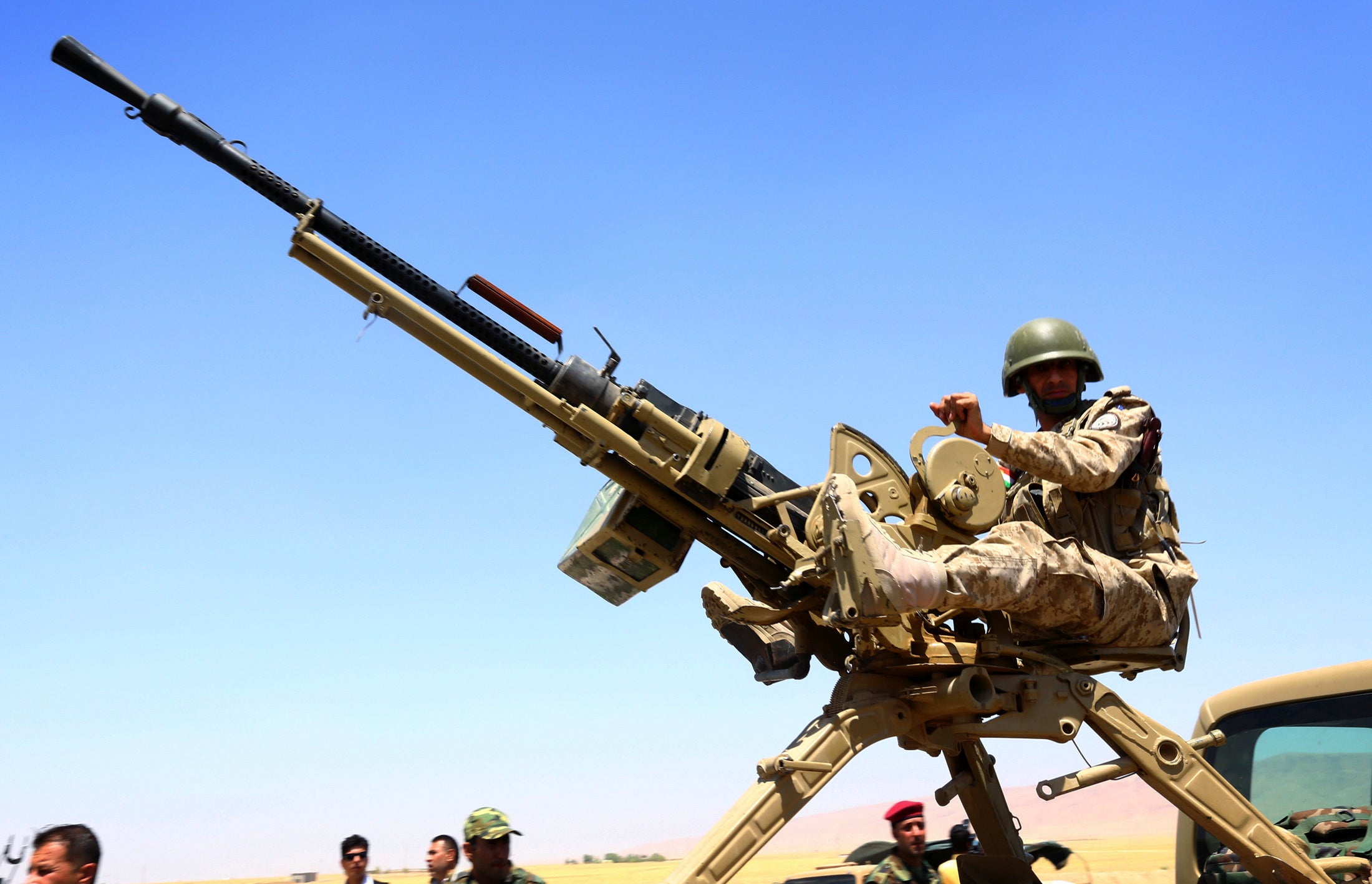Iraq crisis: US pledges to arm Kurdish forces as international momentum against Isis grows
American air strikes continued over the weekend, allowing first gains in weeks against militant advance

Your support helps us to tell the story
From reproductive rights to climate change to Big Tech, The Independent is on the ground when the story is developing. Whether it's investigating the financials of Elon Musk's pro-Trump PAC or producing our latest documentary, 'The A Word', which shines a light on the American women fighting for reproductive rights, we know how important it is to parse out the facts from the messaging.
At such a critical moment in US history, we need reporters on the ground. Your donation allows us to keep sending journalists to speak to both sides of the story.
The Independent is trusted by Americans across the entire political spectrum. And unlike many other quality news outlets, we choose not to lock Americans out of our reporting and analysis with paywalls. We believe quality journalism should be available to everyone, paid for by those who can afford it.
Your support makes all the difference.The US has said it will begin providing firearms directly to the Kurdish forces operating in northern Iraq, as pressure grows on the Obama administration to do more to help stop the Isis advance.
Islamist militants have provoked international outrage with a campaign of persecution against Yazidi refugees and minority Christians, leading Republican senators to call the President “weak” for ruling out putting US boots on the ground.
Since the end of last week, US air strikes have provided a major boost to the morale and military capabilities of the Kurdish Peshmerga, at the front line of the fight against Isis.
On Sunday, Kurdish forces retook two towns – Makhmour and al-Gweir, around 28 miles (45km) from the Kurdish capital of Irbil – among a small number gains made after weeks of retreating.
In addition to four consecutive days of strikes from US war planes and drones, the American military has been selling arms to the Iraqi government and helping facilitate deliveries from Baghdad to the Kurds.
The move to directly aid the Kurds underscores the level of US concern about the Islamic State militants' gains in the north. But it also reflects the persistent administration view that the Iraqis must take the necessary steps to solve their own security problems.
That has been refuted by the former Republican presidential nominee John McCain, who criticised the US intervention so far had been “very, very ineffective, to say the least”.
The Republican senator and former US Air Force colonel Lindsey Graham said he feared the rise of Isis would lead to attacks on US soil.
He told Fox News: “If [Mr Obama] does not go on the offensive against Isis, Isil, whatever you guys want to call it, they are coming here. And if we do get attacked, then he will have committed a blunder for the ages.”
In Britain, the former Army chief Lord Dannatt has said that the UK should consider deploying troops on the ground to help support US air strikes.
The Government’s emergency committee Cobra is to hold a meeting today to discuss the growing crisis in Iraq, and Lord Dannatt told the BBC we could not act like it was “not our problem”.
“If we do nothing and wring our hands later and say once again, 'We shouldn't have let that happen', then I think we have all let ourselves down,” he said.
“We have got to look carefully just to ensure that there isn't a genocide about to be perpetrated which we know about and while we are watching.”
The Australian Prime Minister Tony Abbott said yesterday that his country would join the multinational effort, already including Britain and the US, to provide humanitarian aid to up to 150,000 Yazidi civilians trapped on the north-western Sinjar mountain range.
But while empowering the Kurdish forces to defeat Isis themselves appears to be the plan of action for Mr Obama, Germany has expressly ruled out following suit in arming the Peshmerga.
Steffen Seibert, a spokesperson for the German government, told a news conference: “This German government, like its predecessors, has a principle of not exporting arms to any conflict zones or war zones... This is a principle we feel committed to upholding.”
Join our commenting forum
Join thought-provoking conversations, follow other Independent readers and see their replies
Comments